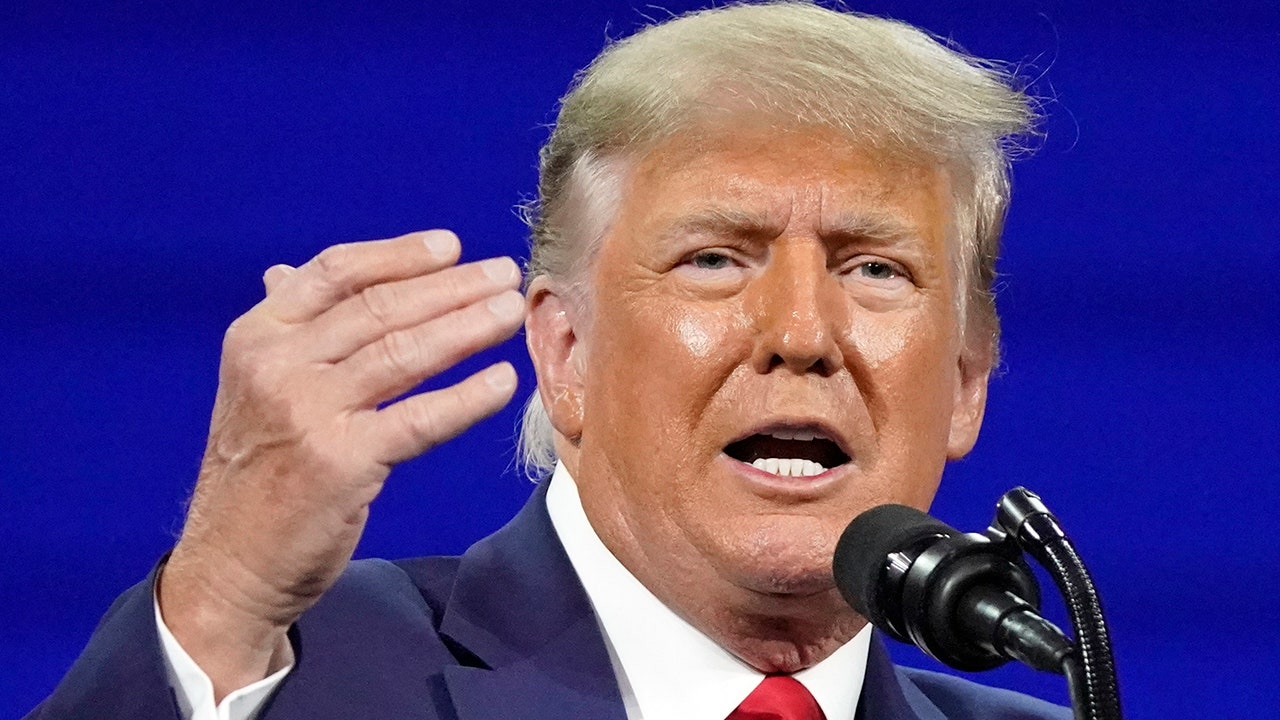A national survey conducted by former President Donald Trump’s researcher in 2016 and 2020 suggests that the Republican Party is divided into what it calls five distinct “tribes”.
The poll by Republican firm Fabrizio, Lee and Associates highlights that four of the five “tribes” have very positive attitudes toward Trump and strongly endorse the work he did at the White House.
MOST REPUBLICANS WANT TO SEE TRUMP PLAYING A GREAT ROLE IN THE GOP FOLLOWING
The categories listed in the survey are “Trump Boosters”, “Diehard Trumpers”, “Post-Trump GOP”, “Never Trump” and “Info Wars Trump”.

Former President Donald Trump speaks at the Conservative Political Action Conference (CPAC), Sunday, February 28, 2021, in Orlando, Florida (AP Photo / John Raoux)
((AP Photo / John Raoux))
Tony Fabrizio, who was Trump’s researcher in his campaign for the 2016 general election and the 2020 presidential re-election, said that one of the goals of his new poll was to measure the influence that Trump still has on the Republican Party. To do this, Fabrizio analyzed Republican voters “based on their attitudes towards President Trump and his role in the party to identify and define the ‘tribes’ that currently exist within the Republican Party.”
“The short answer to the question is that President Trump still has tremendous influence over the party, although it is not universal or homogeneous.”
THE TRUMP-SCOTT MEETING COMES THROUGH THE EX-PRESIDENT’S FRICTION WITH MCONNELL
“Trump Boosters” represented 28% of respondents in the survey. This group has very positive opinions about the former president and a slight majority would vote for Trump in a hypothetical run for the 2024 presidential nomination for the Republican Party that included Trump. But that group supports the Republican Party more than Trump himself.
“Diehard Trumpers” represented 27% of respondents. This group would “definitively” vote for Trump in a potential nomination run in 2024, regardless of who else was running. They firmly believe that Trump should still be leading the Republican Party and describe themselves as supporters of the former president more than supporters of the Republican Party. But they are considered a separate group from the “Info Wars Trump” category because they do not believe in the QAnon conspiracy theories.
A fifth of respondents were described as “Post-Trump GOP”. This group has strong positive views of the former president, but they do not believe Trump should continue to lead the party and would vote for anyone other than the former president on a hypothetical 2024 Republican presidential nomination ballot.
TRUMP ALLIES WITH THE PURPOSE OF REPLACING THE GOP RETIRANTS ESTABLISHMENT SENATORS
Fifteen percent were classified as “Never Trump”. They have an unfavorable opinion about the former president and almost everyone believes that Trump is bad for the party. The vast majority of those interviewed would definitely not vote for Trump again.
One tenth of the respondents were considered “Info Wars GOP”. This group has almost unanimous support for Trump, but it also has a strong and favorable image of QAnon and believes in several conspiracy theories promoted by the group.
The poll indicates that Republican voters in general are divided in their loyalty to Trump – half saying they support the former president more and half putting their allegiance to the Republican Party first. In a separate question, almost six out of 10 of all respondents want Trump to continue to lead the party.
CLICK HERE TO GET THE FOX NEWS APPLICATION
The poll also indicates that if an open primary for the 2024 Republican presidential nomination were held today, Trump would win just over half the vote.
“He beat all the Diehard Trumpers and an overwhelming majority of the Infowars GOP, as well as the majority of the Trump Boosters,” noted Fabrizio.
The national survey of 1,264 Republican voters was conducted from February 20 to March 2, with an overall sampling error of plus or minus 2.76 percentage points.
